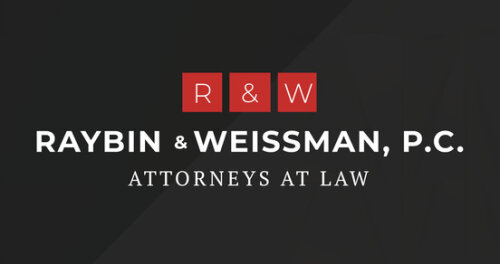Best General Litigation Lawyers in Nashville
Share your needs with us, get contacted by law firms.
Free. Takes 2 min.
List of the best lawyers in Nashville, United States
About General Litigation Law in Nashville, United States
General litigation is the process of resolving civil disputes through the court system or through alternative dispute-resolution methods. In Nashville, which sits in Davidson County and is part of the Middle District of Tennessee for federal matters, general litigation covers a wide range of civil matters including contract disputes, personal injury claims, property and real-estate disputes, business litigation, employment disputes, probate and estate contests, and more. Cases may be filed in local state courts - such as General Sessions, Circuit, or Chancery Courts - or in federal court when federal law or diversity-jurisdiction thresholds apply. Litigation commonly involves pleadings, discovery, pre-trial motions, settlement negotiations, trial, and possibly appeal.
Why You May Need a Lawyer
People seek a litigation lawyer for many reasons. Common situations include:
- You have suffered an injury or financial loss and want compensation from another party.
- A business dispute threatens contracts, revenue, or reputation and needs formal enforcement or defense.
- You face a breach-of-contract claim, or you must enforce a contract against another party.
- You are served with a lawsuit and must respond correctly and within court deadlines to avoid default judgment.
- You need to preserve and collect evidence through discovery - for example depositions, document requests, or subpoenas.
- A dispute involves complex statutes, technical legal standards, or multiple parties and insurers.
- You want to evaluate settlement offers or mediation and need help weighing risks and likely outcomes.
- You need to appeal an adverse decision or defend against an appeal.
Litigation lawyers help with legal strategy, procedural compliance, advocacy at hearings and trial, negotiation, and risk assessment. Because litigation involves strict time limits and procedural rules, early advice can materially affect the outcome.
Local Laws Overview
Key aspects of local law and procedure that are especially important in Nashville litigation include:
- Court structure - Davidson County has several levels of state court that hear civil cases: General Sessions Court for many small claims and preliminary matters, Circuit Court for jury trials and many civil matters, and Chancery Court for equity, certain injunctive-relief matters, and specialized claims. Tennessee appellate courts include the Court of Appeals, the Court of Criminal Appeals, and the Tennessee Supreme Court. Federal civil cases in Nashville are heard in the United States District Court for the Middle District of Tennessee.
- Procedural rules - State civil practice is governed by the Tennessee Rules of Civil Procedure and the Tennessee Rules of Evidence. Local courts also have local rules and filing requirements that control schedules, filings, and courtroom procedures. Federal litigation follows the Federal Rules of Civil Procedure and the Federal Rules of Evidence plus the local rules for the Middle District of Tennessee.
- Filing and e-filing - Tennessee courts generally use an electronic filing system. Filers must meet format, service, and filing-fee requirements. Local courts may have specific procedures for civil case initialization, scheduling orders, and mandatory disclosures.
- Statutes of limitation and pleading deadlines - Time limits for bringing claims vary by type of case and are strictly enforced. Common claims may have short limitation periods or special discovery rules. Missing a limitation deadline can bar a claim forever, so prompt legal review is critical.
- Discovery and evidence - Discovery tools include written interrogatories, requests for production, requests for admissions, subpoenas, and depositions. Local rules and judges often set firm discovery timetables and limits on scope and duration.
- Alternative dispute-resolution options - Many courts encourage or require mediation or other ADR before trial. Private arbitration agreements are also common in commercial and consumer contracts and have distinct procedural rules and standards of review.
- Local courthouse practices - Judges, clerks, and court staff in Nashville and Davidson County follow local customs on motion practice, courtroom decorum, and scheduling. Understanding these practices improves efficiency and compliance.
- Enforcement and remedies - Remedies in Tennessee include monetary damages, specific performance, injunctive relief, and equitable remedies. Enforcement of judgments involves separate procedures for garnishment, liens, executions, and contempt where appropriate.
Frequently Asked Questions
What is the first step after someone notifies me of a lawsuit?
Read the papers carefully and note any deadlines. In Tennessee, you usually have a short period to respond. Contact a litigation attorney promptly to discuss options and to prepare and file a timely response - such as an answer or a motion - to avoid default. Preserve all documents and communications related to the dispute.
How long does a typical civil lawsuit take in Nashville?
Duration varies widely. Small claims and some motions can resolve in weeks or months. Complex civil cases often take a year or more from filing to trial, and appeals add additional months or years. The timetable depends on case complexity, the court calendar, discovery needs, and whether the parties settle.
How much will it cost to hire a litigation lawyer?
Costs depend on the lawyer's experience, case complexity, and fee arrangement. Common fee models include hourly billing, flat fees for limited tasks, and contingency fees where the lawyer is paid a percentage of any recovery. Expect additional costs for court filing fees, expert witnesses, depositions, and other litigation expenses. Ask for a written fee agreement and regular billing updates.
Can I handle my case without a lawyer?
You can represent yourself, but litigation involves procedural rules, evidence standards, and strategic decisions that can be difficult for nonlawyers. Self-representation can be risky in complex matters or where significant money, rights, or business interests are at stake. Even a short consultation with a lawyer can identify critical issues and deadlines.
What should I bring to my first meeting with a lawyer?
Bring all documents and communications related to the dispute - contracts, invoices, letters, emails, photos, medical records, police or incident reports, notices or summons, and a timeline of events. Prepare a written summary of what happened and list potential witnesses. Be prepared to discuss objectives and budget.
How do statutes of limitation affect my case?
Statutes of limitation set deadlines to file claims and vary by claim type. Some claims have short deadlines and special discovery or tolling rules. If you suspect you have a claim, contact a lawyer quickly because the clock may already be running.
What is discovery and why is it important?
Discovery is the pre-trial process for obtaining information from the other party and third parties. It includes written questions, document requests, depositions, and subpoenas. Discovery helps build your case, test the opponent's claims, and support settlement negotiations. Failing to comply with discovery can lead to sanctions or an adverse inference.
What are my options for resolving a dispute without going to trial?
You can pursue negotiation, mediation, or arbitration. Mediation uses a neutral third party to facilitate settlement discussions. Arbitration is a binding private forum where an arbitrator decides the outcome. Settlement is common in litigation because trials are costly, time-consuming, and uncertain. A lawyer can evaluate which option best protects your interests.
How do I find the right litigation lawyer in Nashville?
Look for lawyers who practice civil litigation regularly and who have experience with cases like yours. Use referrals, bar association lawyer-referral services, and local directories. Check the attorney's standing with the state bar and review past case results and client feedback. Schedule initial consultations to assess communication style, strategy, and fee structure.
What happens if I lose at trial in Tennessee?
If you lose, you may have options to appeal to the Tennessee appellate courts or, in federal matters, to the appropriate federal circuit. Appeal deadlines are short and the grounds for appeal focus on legal errors rather than factual disputes. Enforcing or collecting a judgment involves separate procedures such as garnishment or liens. Discuss post-trial rights and the likelihood of success on appeal with your attorney early.
Additional Resources
Helpful local and state resources include:
- Tennessee Rules of Civil Procedure and Tennessee Rules of Evidence for governing state litigation procedure.
- Administrative Office of the Courts - source for statewide court rules, forms, and procedures.
- United States District Court for the Middle District of Tennessee - for federal civil litigation rules and local procedures.
- Tennessee Bar Association - provides resources, ethics guidance, and a lawyer-referral service.
- Davidson County Clerk and Court websites - for local filing requirements, calendars, and local rules.
- Legal Aid Society of Middle Tennessee and the Cumberlands - offers assistance for eligible low-income residents in civil matters.
- Tennessee Board of Professional Responsibility - for information on lawyer credentials and how to raise concerns about attorney conduct.
- Local mediation and ADR centers - many disputes can be resolved through mediation; look for court-approved mediators and ADR roster information at the county or state level.
Next Steps
If you need legal assistance in Nashville for a litigation matter, consider the following steps:
- Act quickly - identify any impending deadlines and preserve evidence immediately.
- Gather documents and make a clear written timeline of events, communications, and damages.
- Contact a qualified litigation attorney for an initial consultation - ask about experience, likely outcomes, fee structures, and strategy.
- If cost is a concern, ask about limited-scope representation, contingency arrangements where appropriate, or referral to legal aid if you qualify.
- Explore alternative dispute-resolution options early - many disputes settle more favorably before trial.
- Keep detailed records of all communications, bills, and actions related to the dispute and follow your attorney's guidance on court procedures and deadlines.
Litigation can be complex and stressful, but timely preparation and the right legal help can protect your rights and improve your chances of a good outcome. If you are uncertain where to begin, start with a focused consultation to clarify options and next steps.
Lawzana helps you find the best lawyers and law firms in Nashville through a curated and pre-screened list of qualified legal professionals. Our platform offers rankings and detailed profiles of attorneys and law firms, allowing you to compare based on practice areas, including General Litigation, experience, and client feedback.
Each profile includes a description of the firm's areas of practice, client reviews, team members and partners, year of establishment, spoken languages, office locations, contact information, social media presence, and any published articles or resources. Most firms on our platform speak English and are experienced in both local and international legal matters.
Get a quote from top-rated law firms in Nashville, United States — quickly, securely, and without unnecessary hassle.
Disclaimer:
The information provided on this page is for general informational purposes only and does not constitute legal advice. While we strive to ensure the accuracy and relevance of the content, legal information may change over time, and interpretations of the law can vary. You should always consult with a qualified legal professional for advice specific to your situation.
We disclaim all liability for actions taken or not taken based on the content of this page. If you believe any information is incorrect or outdated, please contact us, and we will review and update it where appropriate.









